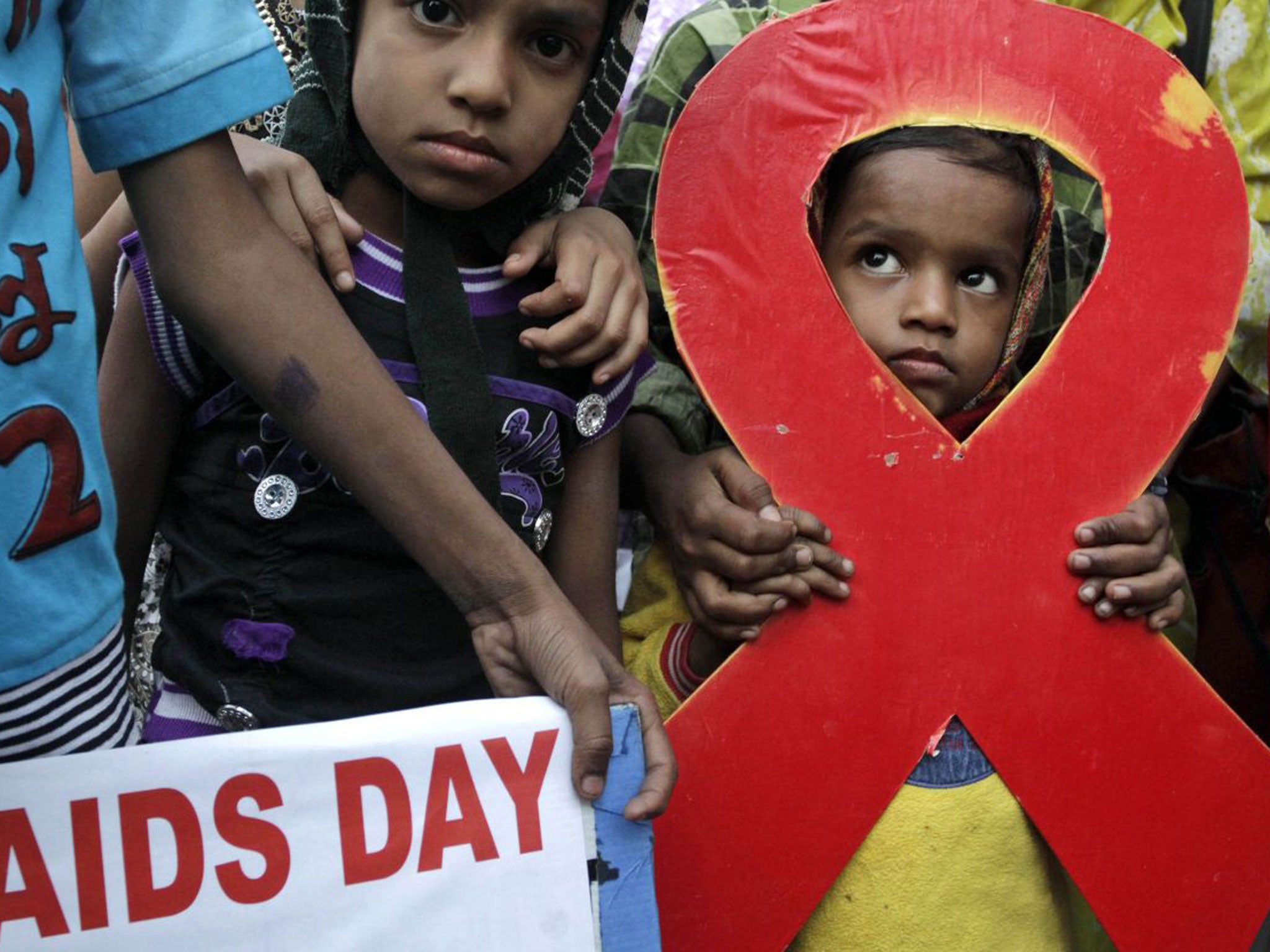World Aids Day: ‘Turning the tide will fail if funding is not increased’

Three decades on from the start of the Aids pandemic, the main global agencies are uncertain whether to be cheerful or gloomy about prospects for the worst disease of modern times .
The Joint United Nations Programme on HIV/Aids (UNAids), a collective of 11 UN groups, is bullish, announcing a more than 50 per cent drop in new infections across 25 countries since 2001, and an "unprecedented acceleration" in the response. An extra 59 per cent of patients have been put on anti-retroviral drugs in the past two years, and deaths from Aids in sub-Saharan Africa have fallen by a third since 2006.
Malawi is the star performer, with a 73 per cent fall in new infections, and Botswana, Namibia and Zambia have all more than halved their rates, proving that a combination of drugs, condom distribution and safe-sex messages can work.
However, One – the global advocacy movement co-founded by rock star and campaigner Bono – says there is a $6bn annual funding gap for Aids programmes and warns that efforts to "turn the tide on the Aids pandemic will fail unless funding, co-ordination and political will … are stepped up".
The targets set last year by world governments for achievement by 2015, will not be met without a "significant scaling up" for children, pregnant mothers and adults. Progress towards halving the number of new adult infections from 2.2 million to 1.1 million by that date is "woefully off track", it says.
Globally, new HIV infections are falling – there were 2.5 million people infected in 2011 – 700,000 fewer than in 2001. Deaths, too, are down – testimony to the life-saving effects of anti-retroviral drugs whose costs have plummeted from $10,000 for a year-long course in 2000 to $100 today.
But One says the "beginning of the end of Aids", proclaimed last year, can be declared only when the numbers being added to treatment exceed the numbers becoming newly infected – at present rates that will not be before 2022. Michael Elliot, chief executive of One said: "The time for fancy speeches is past. It is now time for action."
Infections in children have fallen by 24 per cent in two years – yet 330,000 were newly infected in 2011, mostly during birth. A single dose of drugs given to the mother can dramatically cut the infection rate in newborns, but less than a third of pregnant women and only 28 per cent of children receive treatment, compared with more than half (54 per cent) of adults.
Thirty-four million people had HIV in 2011. The number has been growing each year for a decade as what was once a terminal illness has been transformed by drug treatment into a chronic disease. "We have moved from despair to hope," said Michel Sidibe, the executive director of UNAids. "Now we need to do more."
Join our commenting forum
Join thought-provoking conversations, follow other Independent readers and see their replies
Comments